BLACK PHONE 2 (2025)
As Finn, now 17, struggles with life after his captivity, his sister begins receiving calls in her dreams from the black phone and seeing disturbing visions...
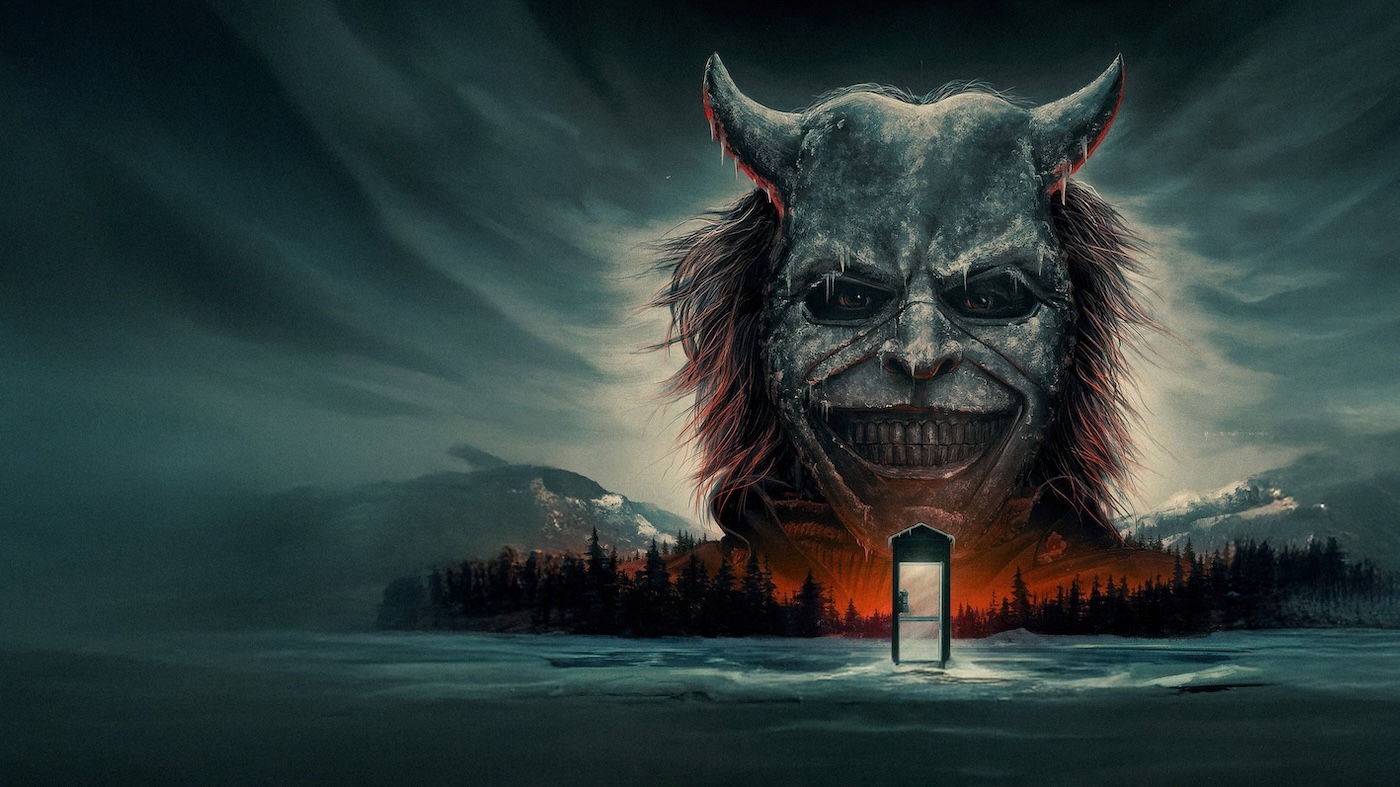
As Finn, now 17, struggles with life after his captivity, his sister begins receiving calls in her dreams from the black phone and seeing disturbing visions...

Having seen the Black Phone 2 trailers, fans may have been concerned it looked like a warmed-over sequel with a plot lifted from A Nightmare on Elm Street (1984). I was definitely nervous going in. But by the time I came out, I was genuinely pleased. Sure, it’s not as original as The Black Phone (2021), but it’s still fun, moving, and allows for universe-building without going overboard on the exposition. What elevates this sequel to greatness is its ability to take threads from the first film and weave an entirely new tapestry with them. Even if it’s not quite as beautiful as the original, it’s refreshingly different.
The plot, like the film itself, picks up three years after The Grabber’s (Ethan Hawke’s) death. Finney (Mason Thames), the boy who killed the serial kidnapper/killer, is refusing to deal with his understandable post-traumatic stress and instead numbs his feelings by picking fights at high school. Meanwhile, his younger sister, Gwen (Madeline McGraw), has endured increasingly disturbing nightmares about children who were murdered at Camp Alpine Lake in the Colorado Rockies. When Finney and Gwen’s mother, Hope (Anna Lore)—who died several years before the events of the first film—calls Gwen from the camp in a dream, the children decide to investigate.
What follows is mostly taken from the typical horror movie guidebook. The formulaic plot points include our hero getting stuck in a remote location due to a freak storm, the bad guy spilling tons of blood, and the necessity of “laying to rest” unrecovered bodies. In most films, these are clichés that would immediately cause my eyes to roll and my brain to switch off. But, in Black Phone 2, I was surprised to find that, while I recognised the formula, I didn’t mind it. That’s because, by the time the formula began taking hold, I truly cared about the characters.
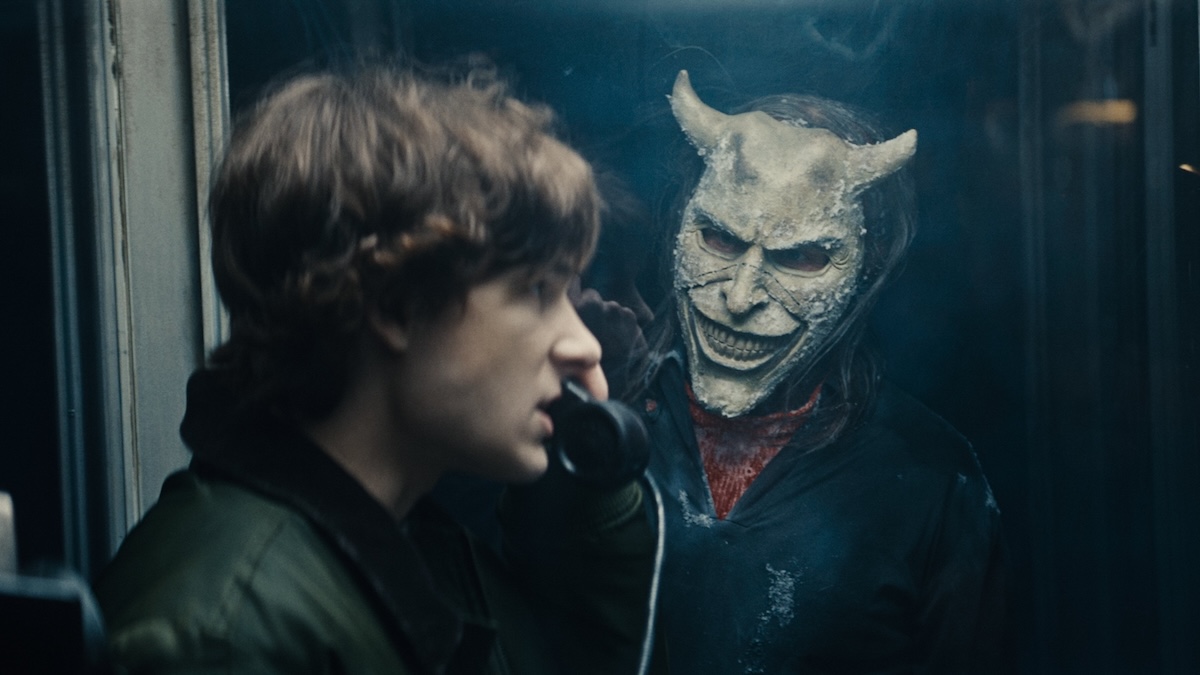
Unlike other less successful horror movies, such as Tarot (2024), Black Phone 2′s co-writer-director Scott Derrickson (Doctor Strange) understands that audiences don’t come to care about characters through expositional dialogue and unnecessary flashbacks. Instead, Derrickson shows us the people on the screen rather than telling us about them. We see their needs, struggles, and fears through small scenes, the dialogue rife with subtext, with feelings that are left unsaid. We also understand and empathise with these characters through a series of beautifully filmed dream sequences.
This is one area where Black Phone 2 truly becomes original and entirely its own. Character dreams always seem to have been both a heaven and a hell for filmmakers. In movies like Christopher Nolan’s Inception (2010) and Wes Craven’s original Nightmare on Elm Street, the plot requires the dreams to meld into reality, causing audiences and the characters to question which is which. Black Phone takes the idea of dreams and reality in an entirely different direction… as we can always tell when Gwen is dreaming.
From the beginning, when a nostalgic, shaky, home-video style filter falls across Gwen and her surroundings, we understand that the dreams here won’t blur into reality. And it works for the best that they don’t. This allows us to straddle two worlds simultaneously. We follow Gwen into a strangely nostalgic, grainy, and dark vision of The Grabber’s past exploits. But, at any moment, we understand that we could flip with a twist of the camera to stand at the side of the bed with Finney, watching horrified as scars inflicted on her in her dreams appear on his sister.
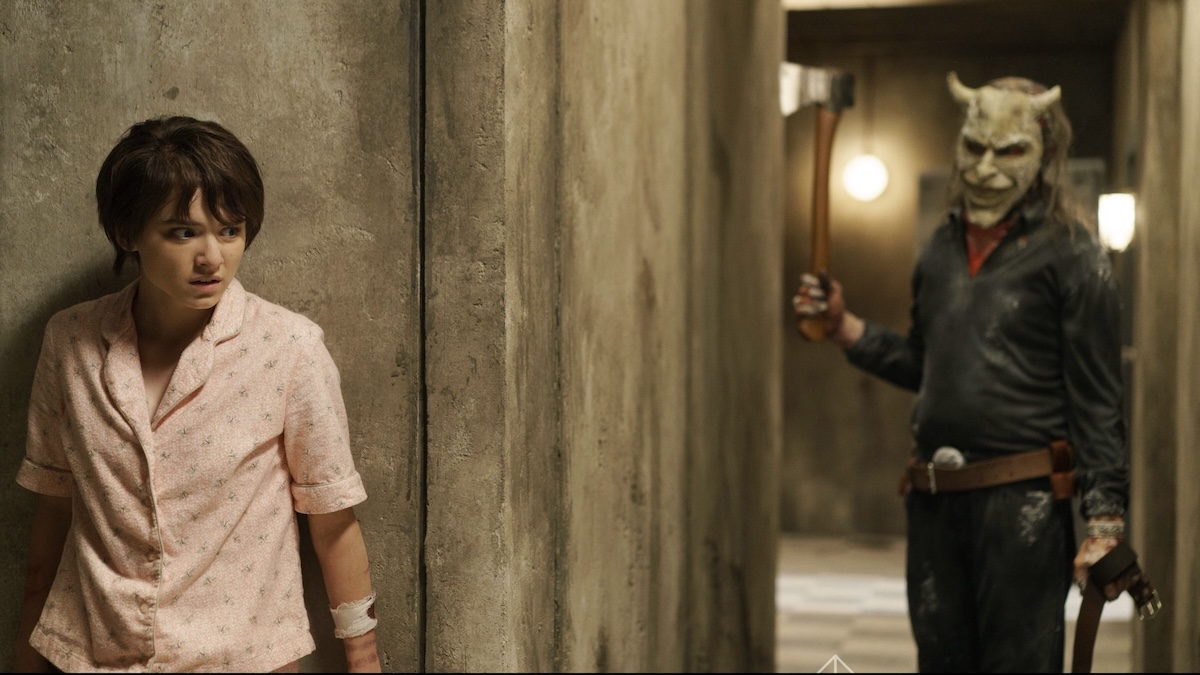
This back-and-forth effect might sound jarring, but on screen it’s anything but. As the audience, we embrace the visual dichotomy as much as we understand and embrace the muffled audio that Finney received from the other side in the first Black Phone.
In Black Phone 2, rather than simply repeat what worked in the first film, which Derrickson could have been forgiven for doing since the first film was so well received, the director chooses not to take the easy route. He decides instead to take the ending of the first film seriously and allow the characters to grow and change in response to the consequences.
As JK Rowling, who did her best to take on teenage PTSD in the fifth Harry Potter book, will tell you, troubled teens are hard to write or film well. In most films, they come off as annoyingly bitter or angry. Add that to a young actor just finding his or her way in the craft, and an attempt at honesty quickly devolves into melodrama. Finney stays away from that trap in this sequel. That is partly due to the exceptional, bare-bones writing and partly due to Mason Thames’ talent. While he’s troubled, Finney never seems unnecessarily angry, which is a hard line to walk for many actors, especially one so young.
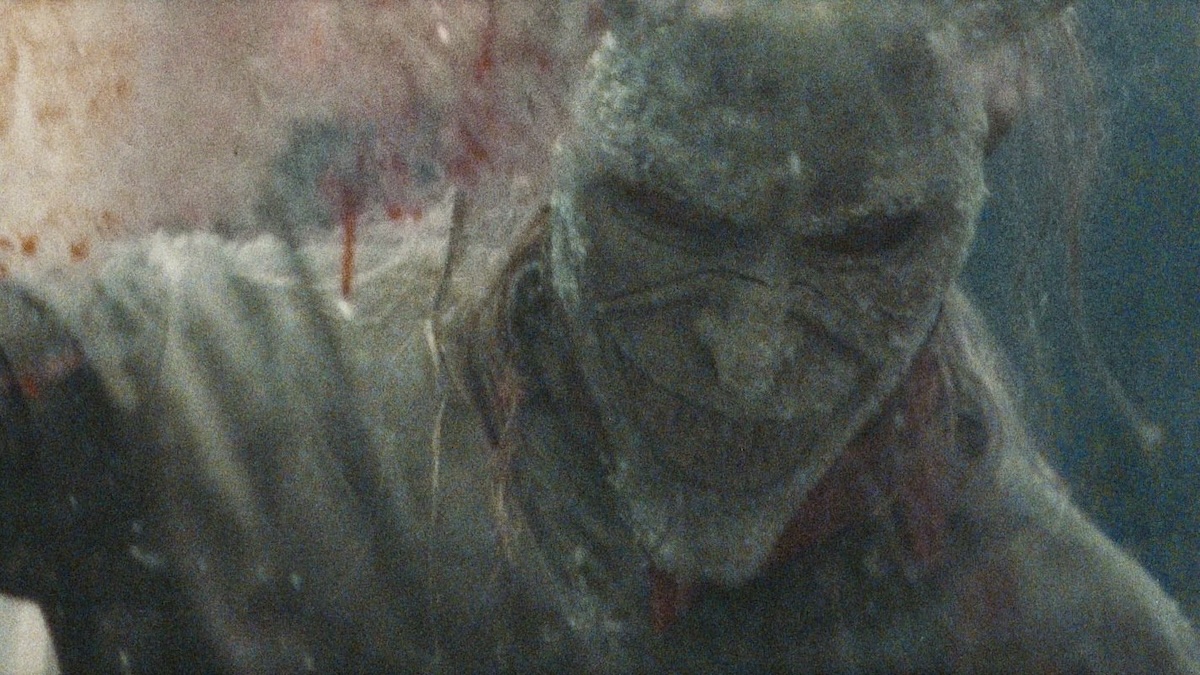
The only time the acting in Black Phone 2 gives way to a bit of melodrama is in a confrontation between Gwen, Finney, and their father (Jeremy Davies) just before the third act begins. This isn’t the fault of the writing, though it’s the only place where a slew of exposition is said rather than shown. The slightly overdone drama comes instead from young Madeline McGraw. Though the scene’s the character’s strongest moment, I couldn’t truly believe McGraw’s portrayal. It was the only time in her otherwise strong performance that the audience catches just a hint of self-consciousness from the young actor. For the first time, we become aware she’s reading lines fed to her rather than speaking her truth.
Luckily, this feeling doesn’t last long, and Mason Thames’ heartbreaking reaction to his sister’s pleas brings us right back to where we should be. It’s typical to see bits of uncertainty from young actors on screen, and Madeline McGraw has fewer than most. But the fact that Thames has none of the typical insecurity or self-consciousness speaks to his raw talent.
Much of the promotion for the film focused on Ethan Hawke (Before Sunrise), mainly because he’s the only really recognisable name in the credits. For fans of the Grabber, he does feature heavily again, and Ethan Hawke’s every bit as good as he was in Black Phone. I particularly enjoyed that, instead of taking the common route of making a horror villain more sympathetic in a sequel, Black Phone 2 goes in the opposite direction.
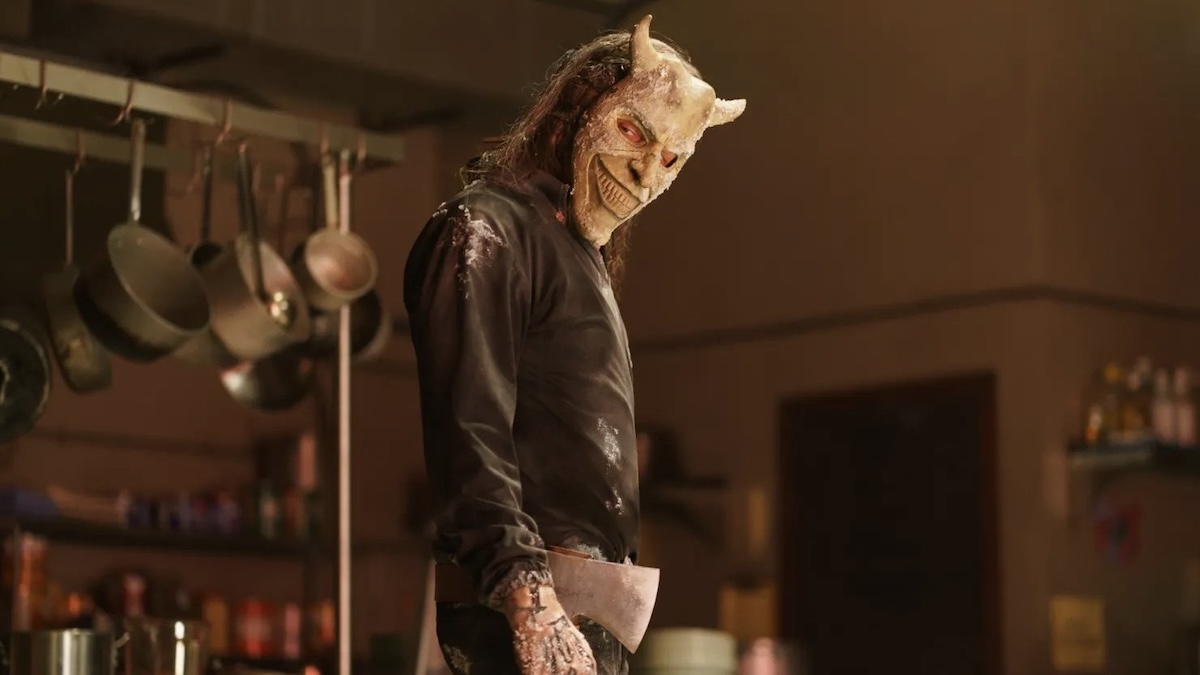
Again, the writers take The Grabber’s death seriously and take us on a journey of what it means for someone to die with that level of sin attached to him. Rather than making him more sympathetic, everything even slightly human about The Grabber’s been chipped away in the afterlife. The character himself tells Finney that, “only the sins are left”. What we see in this character is a fascinating depiction of evil that, like Finney’s psychological troubles, never seems overwrought. We’re fighting a demon who doesn’t always act like a demon but is pure evil nonetheless. Indeed, the state of The Grabber’s sins is more interesting to watch than the somewhat conflicted character we saw in the previous offering. The truth is, villains don’t have to become antiheroes to remain interesting, as people will always be fascinated by seeing pure evil unleashed.
Ultimately, Black Phone 2’s insistence on following story rather than trends and taking its universe more seriously than a lot of cinematic worlds do is its greatest strength. Rather than coasting on the success of its predecessor, the makers of Black Phone 2 proved they have more to say about their fictional world and the human condition as a whole. I can’t wait to see what else they have in store for us.
USA • CANADA | 2025 | 114 MINUTES | 2.39:1 | COLOUR | ENGLISH

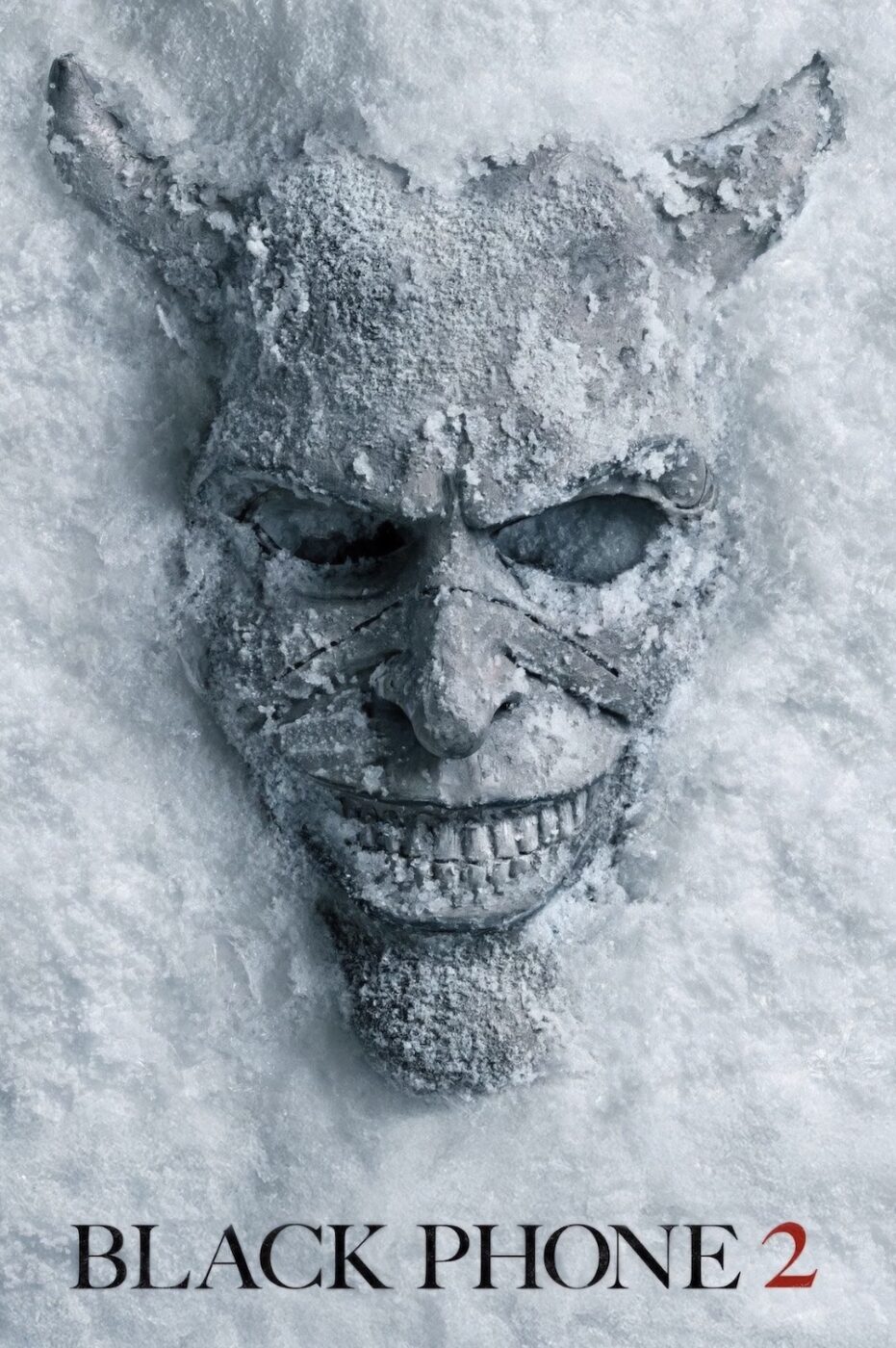
director: Scott Derrickson.
writers: Scott Derrickson & C. Robert Cargill (based on characters created by Joe Hill).
starring: Mason Thames, Madeleine McGraw, Jeremy Davies, Demián Bichir & Ethan Hawke.
